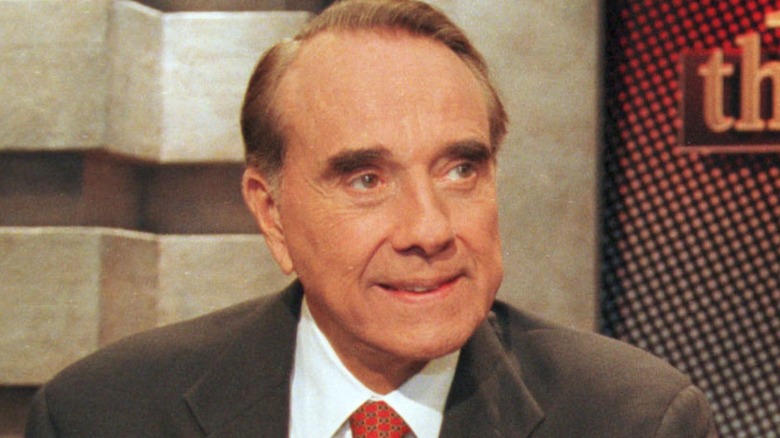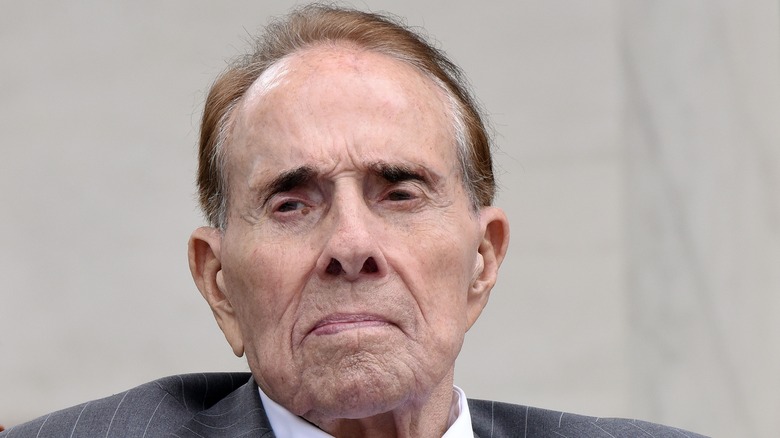The Heartbreaking Reason Bob Dole Waged War On Hunger
Bob Dole, the former Republican senator for Kansas and presidential candidate, died earlier today at the age of 98. As CNN's coverage points out, Dole was a lawmaker and a war hero. But he also used laws to wage war on hunger.
"Problems of hunger and poverty though they still exist and disease, problems as old as the human race, seem closer to solution than at any time in the long struggle of man to fulfill his potential," Dole said in a speech for Kansas State University's 1985 Landon Lecture on Public Issues. Those problems, as The Guardian notes, resonated with the politician, whose formative years were spent in 1930s Kansas. The Dust Bowl had ruined the land and the Great Depression had ravaged the economy. Dole's family was forced to rent out most of their house while living in the basement.
Dole also saw the toll hunger took during World War II. As World Food Program USA describes, the image of people starving in battle-ravaged Europe was a major reason he would take up the issue of feeding the hungry throughout his life. As a senator in the 1970s, Dole was an avid supporter of the WIC program, which made food more affordable for pregnant women and breastfeeding mothers (via the Robert and Elizabeth Dole Archive and Special Collections). He also worked in collaboration with Senator George McGovern to bolster the United States' school lunch program and improve SNAP, known then as the food stamp program.
The impact of Bob Dole is still felt
Bob Dole would play an important role in expanding food access to tens of millions of Americans, many of them children (via World Food Program USA). But his commitment to reducing the pains of hunger did not end at the borders of the United States. He also helped launch the McGovern-Dole international school meals program. William Lambers, a partner with the UN World Food Programme, wrote in HuffPost that the McGovern-Dole initiative, which funds various school meal charities, helped feed 270,000 schoolchildren in Haiti, Laos, and Sierra Leone. "Throughout Sierra Leone, many families are already living on razor's edge due to entrenched poverty," Daniel Mumuni of Catholic Relief Services told The Columbus Dispatch. "Even without the pandemic, tens of thousands of children get their only meal of the day through our McGovern-Dole school feeding program."
Both McGovern and Dole were recognized for their work and received the World Food Prize in 2008. The biographical section one the World Food Prize website, explains how these efforts lead to larger numbers of children receiving education and improved their performance in school. While the actual solutions to the systemic issues underlying hunger and poverty might not seem closer than when Dole gave his lecture in 1985, the decades since have seen millions of children whose lives were impacted by Dole's work.

